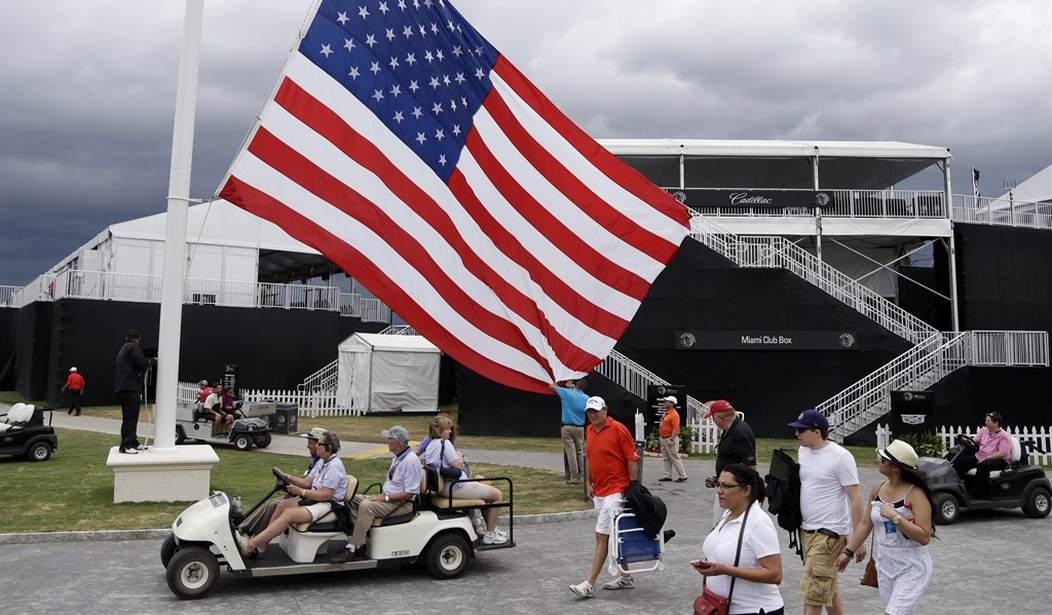Ever heard of Skip Pescosolido? I hadn’t either until very recently, but I’m glad I did. Without Skip, we’d all be paying higher grocery bills.
To understand why, you have to go back to 1937, when the federal government organized orange producers into cartels known as “marketing orders.” Farmers were assigned a weekly quota that basically dictated how many oranges they could sell. Any extras went to waste.
How does this jibe with the free market? It doesn’t. But the government made an exception for marketing orders. By limiting supply, the argument went, the government would prop up orange prices, and thus protect small farmers.
But like so many well-intentioned programs, the gap between theory and practice was wide. Americans naturally had to pay more for their oranges. Millions of oranges were left to rot each year. And which orange growers were hurt the most? Little ones. Big companies such as Sunkist could rely on government to keep small producers from expanding their business.
Like most citrus producers, Skip Pescosolido didn’t think this was fair. Unlike most of them, he did more than complain.
He filed lawsuit after lawsuit, fighting a David-sized battle against Goliath-sized competitors. It took years of determination and work, but it paid off. By 1991, the cartels were gone for oranges and other fruits and vegetables. Farmers can expand their businesses, create jobs … and you and I can pay less for our produce.
I learned about Skip by reading “Falling in Love with America Again,” a new book by Jim DeMint, president of The Heritage Foundation. And I highlighted his story for one reason: It is people such as Skip who give us reason to hope at a time when too many of us seem prone to despair about the future of our country.
We’ve all seen the polls. Survey after survey confirms what we already suspect: Confidence in “institutions” keeps dropping. All branches of government are held in disdain. But while this collective judgment is well-founded, a danger arises: that we will simply give up. If government is too big to be responsive to our needs, what good can we do?
Recommended
Plenty. Ask the ordinary people who are making sacrifices to ensure their children receive the best education possible. The ones running the groups that help drug addicts get clean and build a better life. The ones finding ways to ensure that neighbors and communities are covered against the costs of catastrophic health problems.
You’ll meet them, and many others, in the pages of DeMint’s book. They show how change is possible even with small efforts. You don’t need tons of time, money and resources to be a hero. You can change the world for the better simply by concentrating on your own little corner of it. Joined with the efforts of others, it makes a big difference.
Another reason to resist the temptation to throw up our hands? Because if we do, the problem will only get worse.
“Political consultants use negative campaigns to suppress voter turnout, especially among people who don’t follow politics closely and who want little from government,” DeMint writes. “The strategy works. If they successfully discourage Americans who don’t look to government to solve their problems from going to the polls, that leaves the outcome of elections primarily in the hands of those who want more from government.”
From the very beginning, he notes, America was built by an active, involved citizenry. Not by big government, but by hundreds of communities made up of individuals engaged in self-government. Civic associations, religious and charitable organizations, business groups, local newspaper editors -- their collective efforts built schools, hospitals and churches.
America has changed considerably from its earliest days, but that spirit is still alive, in towns both big and small across this great land.
“Working side by side with volunteer organizations and citizens who are already busy rebuilding America from the ground up has given me confidence that our best days still lie ahead,” DeMint writes. I couldn’t agree more. His new book will restore your belief that America is still a very special country.

























Join the conversation as a VIP Member